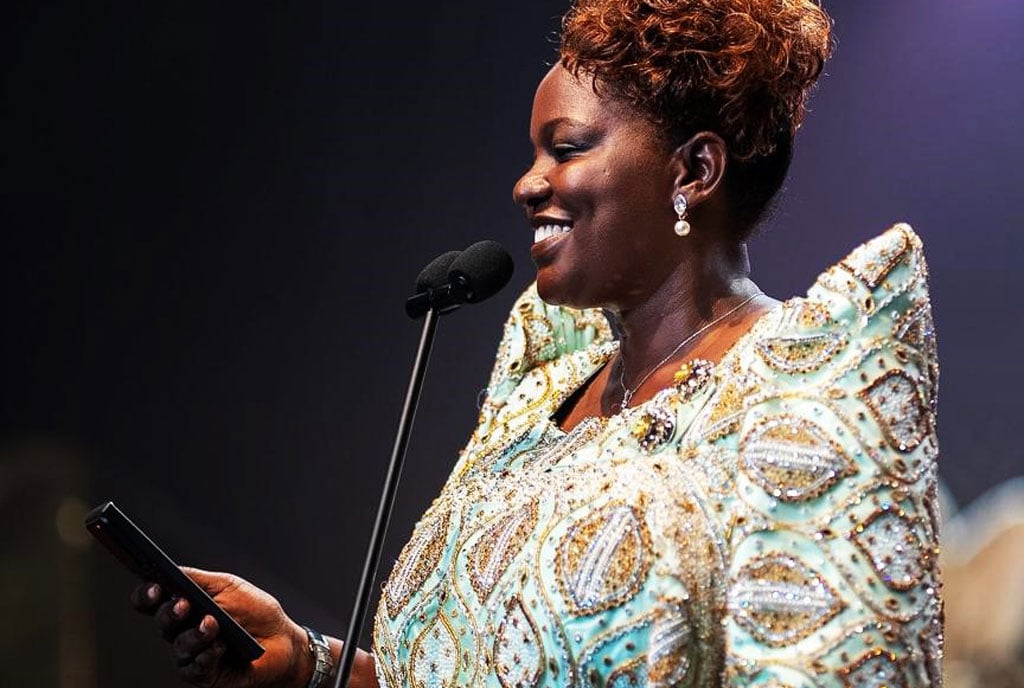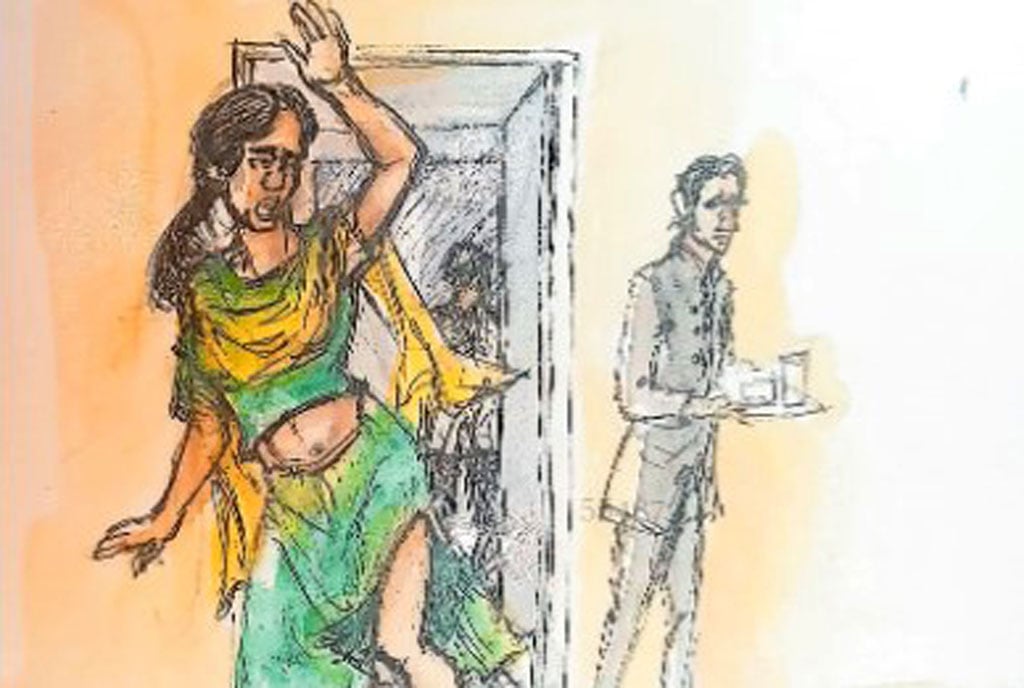
Mariam Ndagire and Salma Bynes (left) wrote Sewati in celebration of Omugave Ndugwa. The play brings together actors, who were shaped by Ndugwa during the days of Black Pearls. PHOTO | COURTESY.
Omugave Ndugwa was one of Uganda’s most celebrated playwrights.
From launching the talents of actors such as Andrew Benon Kibuuka, Mariam Ndagire, Halima Namakula, Kato Lubwama, Abby Mukiibi, and Ashraf Ssemwogerere, among others, he was a kingpin with Uganda’s performing arts industry.
He shaped modern-day theatre by grooming artistes who later spread out to create Afri-Talent, Diamonds Essemble, and Bakayimbira Dramactors. Omugave Ndugwa was the brain behind Black Pearls, a theatre company that created a shift with some of their works.
Ndugwa died in 2022, and like it is with theatre, people usually celebrate personalities with art, so it is the case with the man.
For the past two weeks, actors and playwrights who had their break with the theatre legend have been at the Bat Valley Theatre staging a show, Sewati, written by Mariam Ndagire and Salma Bynes.
The play brings together actors who were with Ndugwa during the days of Black Pearls. The drama company had their home at Riverside Theatre; thus, they combined their name Riverside Pearls from both their group and it’s home.
Sewati is a play addressing mental health and the challenges this brings to those around the patients. It follows a rich man, Sewati, who suffers from dementia and is at the mercy of his wife, who is hell-bent on seeing him lose it so that she takes over his wealth with her new boyfriend.
But like all plays written by Ndagire, this has multiple plotlines, including that of Sewati, a man who threw out his family (his two daughters and son) to marry their agemate. The long-term maid’s story and the secrets she knows in the house, her son’s story, and Sewati’s side of the story in everything that was going on.
The story starts when Sewati, the patriarch of the home, is not fully in charge of his mental faculty; thus, he’s being taken advantage of; from the onset, he’s an innocent man surrounded by vultures.
As the story goes on, we learn from his second wife that she became his wife after he raped her. We also learnt from the conversation that Sewati had chased all his children from home, and they had settled and started families abroad.
Then there was a loose story of fraud involving one of the characters with her husband—he had received money to put together a hotel and had gambled all of it.
The problem with Sewati is that it introduces many plotlines, and many of these are forgotten at the introduction.
It is a brilliant writing of making sure Sewati is flawed; he’s basically where he is because of the choices he made, but his past actions neither have consequences nor do he get to be remorseful.
There is also a change in focus half way through the show; at the beginning, Sewati’s wife is scheming against him for most of the time, yet as the play goes on, villains change guards to her friend.
How she becomes the main protagonist for the second part of the show is something that is never explained.
Oh, there is also a theme of a young man dating an older woman that is never fully developed but discussed and discarded.
One thing the show, however, manages to do so well is entertain the audience, engaging and having them take sides. It is engaging on purely an entertainment level.
Though, as a story marvel, Sewati falls short, there are many plotholes they don’t resolve, and as you could expect, the curtains fall after another wrecking ball has been dropped on the cast, indicating that the family shamba boy was actually a son of Sewati as well.
The play is one of the many initiatives Mariam Ndagire has been part of to promote and revive theatre, which has been struggling for a number of years.
Some of these efforts have seen her introduce a festival, monthly nights, and symposiums.








